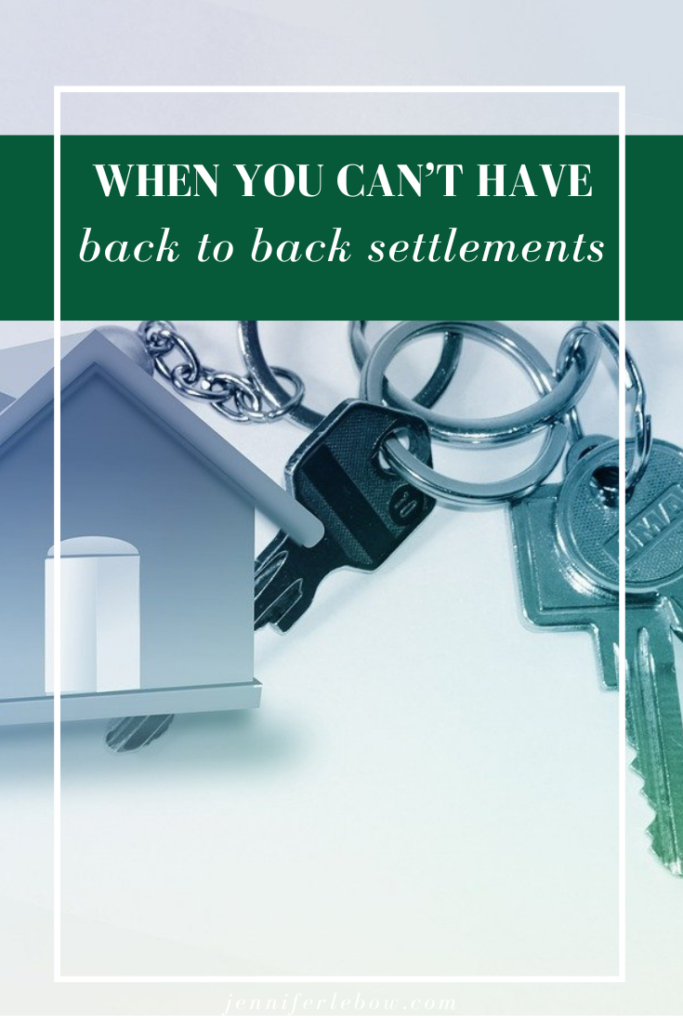
When you don’t have “back-to-back” settlements
Back-to-back settlements describes the situation when someone closes on their old home on the same day they settle on their new one. In theory, they can avoid being “homeless” altogether. Not being able to move directly from one house to the other on the same day is certainly inconvenient. However, not everyone has that option. Many people need to sell their current home in order to have the cash (or be able to qualify for a mortgage) to buy a new home. Even if you don’t need to sell before you buy, it is challenging to align settlement dates on the old and new properties on the same day. So even those who can buy prior to selling may find that they need to vacate their current home before they can move into their new one.
Considerations
So what do you need to consider if you can’t move from one house right into another?
- Where you can stay–The most significant issue is where you and your family can stay. Maybe a friend, relative or neighbor can house you. If not, you might think about an extended-stay hotel or an AirBnb or VRBO. You may even need to sign a short-term lease. When deciding where you can go, don’t forget to allow for pets! If they can’t accompany you, you’ll have to figure out accommodations for them as well.
- Storage of your belongings–When you can’t move your furnishings and personal possessions into your new home, where will they go? If you have a short “layover”, like a few days, the moving company will often store your things for a fee. However, if it’s more than a couple of weeks, that cost becomes prohibitive. At that point, it might make more sense to rent a storage facility. And remember, you’ll need to arrange for a truck to both pick up/deliver to the storage facility as well as deliver it to the new house once you can move in.
- School transportation–Remember that if your kids are bused to school, if you have a temporary new location, especially if it’s outside of the school district, you will need to find a way to get them to school.
- Logistics–think about mail forwarding, changing utlities, getting renter’s insurance if appropriate, etc.
- Bridge loan–If the only reason you can’t do a back-to-back settlement is financial, it might make sense to investigate whether a bridge loan is an option. Talk to a couple of lenders early on in your home search.
- Home sale contingency–When you put a home-sale-contingent offer on a house, it protects you from having to lose your deposit money in the event your home does not sell. To be honest, this continency is rarely accepted by sellers, because it puts them at risk of having THEIR sale (and then their future purchase) fall through if yours does. However, depending on the market, it might be worth considering.
- Rent back–While uncommon, some buyers will allow sellers to rent back their home, after the settlement has taken place. In this case, you would have the money to put toward a new property, but would need time to not only find a new house, but also to allow for the lender to process all the paperwork. That period of time would be when you’d rent back the house from the new owners (who wouldn’t move in until you move out).
As I mentioned, being able to afford and schedule back-to-back settlements is a luxury. Many circumstances, though, can eliminate that possiblity. Before you are too far along in the home buying process, I’d recommend exploring your most likely sequence of events. Determine what choices you have and then do your homework understanding what each would entail. Then you can make a more informed decision about your timing, what kind of offers to write, and you’ll have a better idea of what to expect.


Leave a Reply